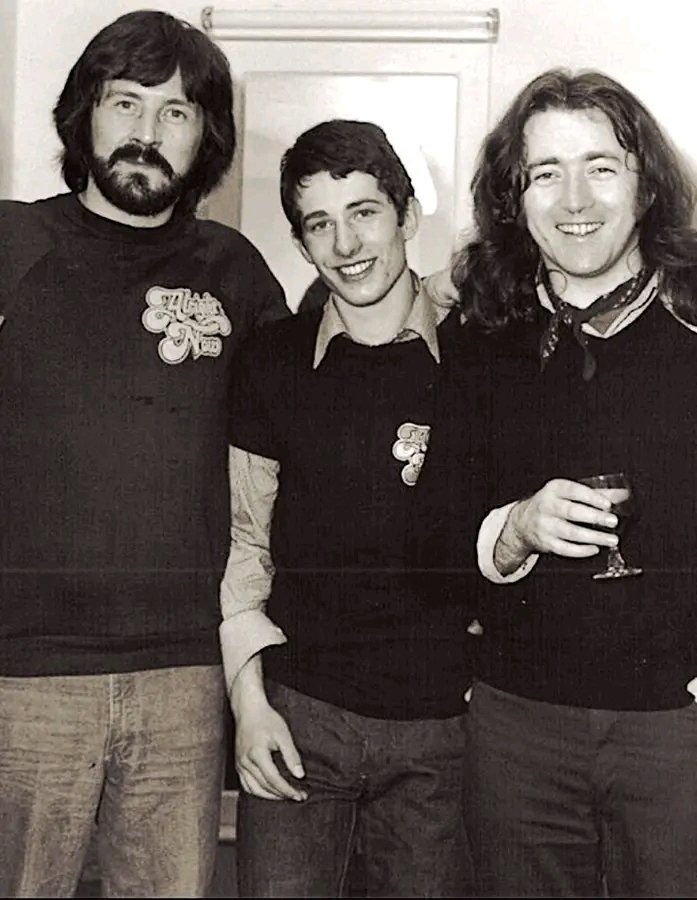“When Thunder Met Fire: The Untold Connection Between John Bonham and Rory Gallagher”
In the pantheon of rock legends, few names evoke as much raw power and soul as John Bonham and Rory Gallagher. One was the unstoppable engine behind Led Zeppelin’s thunderous rhythm, the other a blues-soaked virtuoso from Ballyshannon who could make a guitar weep and roar within the same breath. Though they belonged to different musical realms—Bonham’s in hard rock and Gallagher’s in blues-rock—their paths crossed in ways that left a lasting mark on each other and the music they helped shape.
John Bonham, famously known for his seismic drumming, was a man who admired musicians with authenticity—those who didn’t hide behind gimmicks or fame. Rory Gallagher, with his battered Stratocaster and working-class humility, fit that mold perfectly. In private conversations and backstage moments, Bonham often praised Rory’s relentless dedication to live performance and his refusal to compromise his sound for commercial success. “He’s the real deal,” Bonham was once overheard saying. “That’s the kind of playing that keeps you honest.”
Their mutual respect came to light during the early ’70s when both artists were dominating stages across Europe. At festivals and jam sessions, they occasionally crossed paths—not in headline-grabbing supergroups, but in smoky afterparties and backstage lock-ins, where musicians played not for the crowd but for the love of it. Rory would lay down a searing blues riff, and Bonham, sometimes intoxicated but always in sync, would jump in with a groove so tight it felt like a heartbeat. Those impromptu collaborations, though rarely recorded, are remembered by fellow musicians as moments of magic.
There was even talk—quiet whispers—of a possible side project or jam record involving Bonham, Gallagher, and other trusted musicians outside of the Zeppelin machine. But time, touring schedules, and fate had other plans. Bonham’s tragic death in 1980 cut short not just Led Zeppelin’s reign, but also the possibility of deeper musical union with artists like Rory.
Gallagher himself mourned Bonham deeply. “He wasn’t just a powerhouse,” Rory said in a 1981 interview. “He was musical in a way that most drummers never are. He played with heart.” For Gallagher, who would himself pass far too young in 1995, Bonham’s loss was more than the death of a bandmate-in-the-making—it was the silencing of a kindred spirit.
Today, fans who dig into the bootlegs and rare tapes of the era still speculate: What might have happened if Rory Gallagher’s fire had joined forces with John Bonham’s thunder for an official collaboration? We’ll never know. But in the echoes of Bonham’s drums and the wail of Rory’s guitar, you can still hear the flicker of what almost was—a friendship forged in authenticity, rhythm, and the unbreakable soul of rock and roll.
